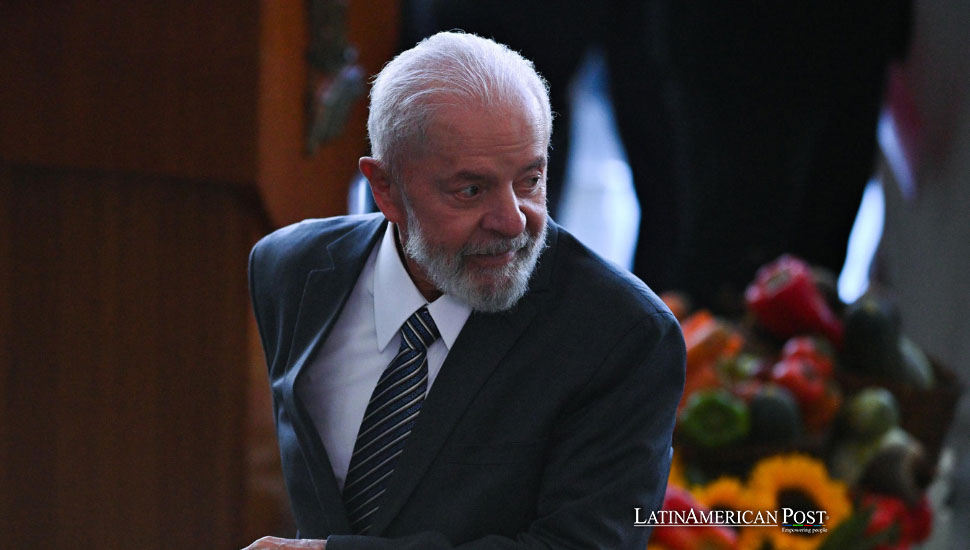Brazil’s Lula Pledges Fiscal Discipline Amid Economic Uncertainty

Brazil’s President Luiz Inacio Lula da Silva has ordered his economic team to adhere to the country’s fiscal framework, approving significant spending cuts to ensure fiscal responsibility. This move comes amid market concerns over fiscal deterioration and economic stability.
Brazil’s President Luiz Inacio Lula da Silva ordered his economic team on Wednesday to comply with the country’s fiscal framework, approving suggestions for spending cuts, the country’s finance minister told journalists.
Brazilian assets had suffered a sell-off in recent weeks as markets feared fiscal deterioration amid a government reluctance to cut spending. Investors were concerned about the government’s ability to comply with the fiscal framework approved last year. However, the Brazilian real rose nearly 2% against the U.S. dollar in spot trading on Wednesday as market participants awaited details from Lula’s meeting with his economic team and after the president reaffirmed his commitment to fiscal responsibility.
“The first thing the president ordered us to do was ‘comply with the fiscal framework,'” Finance Minister Fernando Haddad told journalists in Brasilia after the meeting, referring to a constitutional law that limits government spending and ensures fiscal responsibility. This framework is crucial for maintaining economic stability and investor confidence in Brazil’s financial markets. It sets clear guidelines for government spending, ensuring that it remains within sustainable limits and does not lead to fiscal deficits, which can undermine economic stability and investor confidence.
Haddad also said that Lula approved suggestions presented in the meeting to cut 25.9 billion reais ($4.7 billion) in government spending. These measures would allow Lula’s administration to comply with the fiscal framework next year. The government will implement greater scrutiny among the proposed measures to cut social benefits from ineligible recipients. Some of these moves could be accelerated if needed to help the government meet the fiscal rule this year.
Addressing Market Concerns
The recent sell-off in Brazilian assets has been attributed to prolonged high interest rates in the U.S. and domestic fiscal uncertainties. These high interest rates in the U.S. have led to a strengthening of the U.S. dollar, making it more expensive for Brazilian businesses and the government to service their dollar-denominated debts. This, coupled with domestic fiscal uncertainties, has led to a weakening of the Brazilian real, which has declined around 13% against the U.S. dollar this year and 6% in June alone. This decline has been exacerbated by Lula’s persistent criticisms of the central bank and its reluctance to cut spending.
Before the meeting, Haddad attributed part of the real’s strength on Wednesday to improved communication from the government. Acknowledging the importance of clear and consistent messaging to the markets is a positive step towards restoring confidence in Brazil’s economic policies.
Brazil’s economic challenges are common in Latin America. The region has been grappling with financial instability, high inflation, and fiscal deficits, exacerbated by the global economic slowdown and the COVID-19 pandemic. Countries like Argentina, Colombia, and Peru are also facing significant financial pressures, highlighting the region’s broader context of fiscal challenges.
Lula’s unwavering commitment to fiscal responsibility is a pivotal step for Brazil, a country often viewed as a regional economic leader. By adhering to the budgetary framework, Brazil is not just setting a positive example for other Latin American countries grappling with similar issues, but also instilling a sense of confidence in its own economic future. The success of these measures in stabilizing Brazil’s economy could potentially inspire similar approaches in neighboring countries, further strengthening the region’s economic stability.
Future Prospects and Economic Outlook
Haddad mentioned that the government could block planned spending depending on the development of public accounts. Later this month, a bi-monthly revenue and expenditures report will be released, which will provide further insights into the government’s fiscal strategy and its impact on economic stability.
The approval of spending cuts is a significant move towards ensuring Brazil’s fiscal discipline. However, the real test will be in the implementation and effectiveness of these measures in addressing the underlying economic challenges. The government’s ability to balance fiscal responsibility with social welfare programs will be crucial in maintaining public support and achieving long-term financial stability.
Lula’s administration is facing a delicate balancing act. On one hand, there is a pressing need to maintain fiscal discipline and investor confidence. On the other hand, there is a significant demand for social spending to address the population’s needs, particularly in the wake of the economic disruptions caused by the pandemic. The approved spending cuts, including the scrutiny of social benefits, indicate a focused approach to eliminate inefficiencies while safeguarding essential services, a balancing act that the audience can empathize with.
Brazil’s commitment to fiscal discipline under President Lula da Silva’s leadership is a positive step towards economic stability. The approved spending cuts and adherence to the budgetary framework demonstrate the government’s resolve to address market concerns and ensure fiscal responsibility. However, implementing these measures will be critical in determining their success.
As Brazil navigates these economic challenges, the outcomes will have profound implications for Latin America. The region is closely watching Brazil’s efforts to stabilize its economy and restore investor confidence. The potential success of these measures could serve as a beacon of hope for other Latin American countries facing similar fiscal pressures, offering a model for sustainable economic growth and stability.
Also read: Brazilian Real Plunges Amidst Government Communication Woes and Market Noise
While the path ahead is fraught with challenges, Brazil’s focus on fiscal discipline and economic stability provides a hopeful outlook for the country’s financial future. The commitment to adhering to the budgetary framework and the approved spending cuts are steps in the right direction, aiming to restore confidence and promote sustainable economic growth in Brazil and the broader Latin American region.





